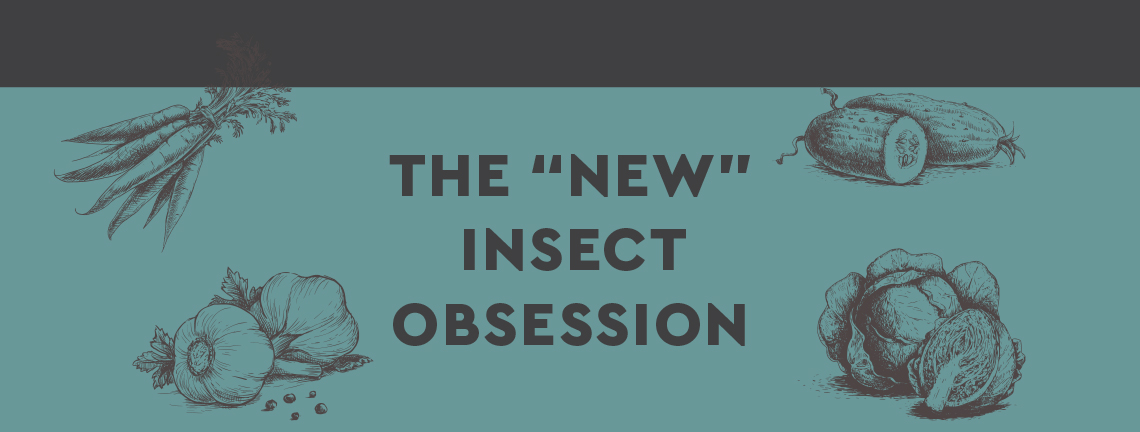Rabbi Sholom Kesselman, OK West Coast Rabbinic Coordinator
The purpose of this article is to bring awareness and provide information relating to this topic.
Question: What’s with this seemingly new fuss people are making over insects in our produce? Is it really an issue? If previous generations didn’t make such an issue out of it, why are we? What practically should be done to make common everyday produce kosher and insect free?
Answer: As this topic requires an extensive answer, more than what this article can offer, I will keep the points brief and focus on the most essential parts.
The prohibition against eating insects is Min HaTorah (Biblical). If one eats an entire insect, even if it is less than a kezayis, he is punished with malkus (lashes). This applies to any insect that is visible to the naked eye. Insects that can only be seen under a microscope are not included in this prohibition.
The need to check fruits, vegetables, fish, and even water for insects is actually nothing new. The Gemara raises the issue in Maseches Chullin (67b) and the Shulchan Oruch devotes an entire siman (chapter) in Yoreh Dea’h (Si. 84) to it. The Pri Chadash actually writes: “I cannot contain myself from mentioning and making it known to the nation of Hashem regarding the severity of the prohibition of tolaim (insects). It has become light in the eyes of people and once a person becomes accustomed to a certain transgression it becomes ‘permissible’ in their eyes. Even the Chachomim are not careful enough in this matter.”
Halacha requires us to check all fruits and vegetables where it would be normal to find insects. This is not only when a majority of a given item is known to contain insects, but even when a decent minority (mi’ut ha’motzui) is known to have them. The basic rule of thumb is, if you wouldn’t be surprised to find an insect in it, it requires checking. There are different opinions as to what exactly is the minimum percentage. OK Kosher has adopted the stricter opinion that if 10% of a portion of any given item contains insects, it is mi’ut ha’motzui and requires checking.
There are a number of factors that contribute to insect infestation; the two biggest are climate and use of pesticides. For this reason, not all produce is alike. Levels of infestation may vary country by country, or even state by state, depending on the climate and amounts of pesticides used. This is why we are seeing a recent renewed emphasis on this matter. The use of pesticides is on the decline due to new awareness of toxicity. Weaker and less potent chemicals are now used in place of the harsher pesticides of previous decades, resulting in an increase in the level of insect infestation. This may account for a big part of the reason why our parents’ and grandparents’ generations didn’t treat this issue as seriously as we do today, because then it was, in fact, less of an issue.
A common misconception is that insects are not an issue because even if there are a few inside the produce they would be botul b’shishim (nullified by a ratio of 1:60). This is not true, as bittul does not apply to an entire creature (a “berya’h”). If, however, one is making a smoothie or pureeing the fruits and vegetables in such a way that any insects would certainly be pulverized, a standard rinse would be sufficient and there would be no need to check for insects. After being crushed by the blender, any insects present would be botul b’shishim.
Bagged fresh salads (without a reliable hechsher) are also problematic even when the bag states “washed and ready for use”. Many consumers assume that the vegetables are washed satisfactorily and are free of insects, based on the quality control standards of the company. However, experience has proven that these bagged salads often contain insects as well. The standard of washing which the company requires is not the same as what halacha demands. What is considered “clean” with regard to food safety is halachically insufficient. For this reason, bagged greens still require checking for insects.
So, where does this leave us? What things need to be checked and how?
Firstly, I would suggest downloading the OK Kosher Vegetable Checking Guide, which can be downloaded FREE at http://www.ok.org/consumers/your-kosher-kitchen/ok-vegetable-food-checking-guide/ or in the iOS and Google Play stores. There you will find a detailed list of what needs checking and the correct methodology.
In short, here are some examples of everyday fruits and vegetables that require halachic checking for insects: artichokes, asparagus, basil, mint, broccoli, cabbage, cauliflower, celery, dill, kale, lettuce, parsley, cilantro, scallions, spinach, and strawberries.
The wash and check system that OK Kosher has adopted (after much testing and consulting with the top rabbinic authorities on this subject), which can be used for almost all fruits and vegetables, is called the “The Mesh Cloth System”. It allows you to check greater quantities of produce in a more time efficient manner. This is the system used in OK certified facilities and it is what is recommended for home use, as well.
The following items are known to be extremely difficult to clean and for this reason they are not used in OK certified facilities: blackberries, raspberries, mulberries, artichoke leaves, and asparagus heads (unless of course they have been pureed).
In the merit of our added care and attention to matters of kashrus, may we be zoche to the geulah shleima b’karov.







